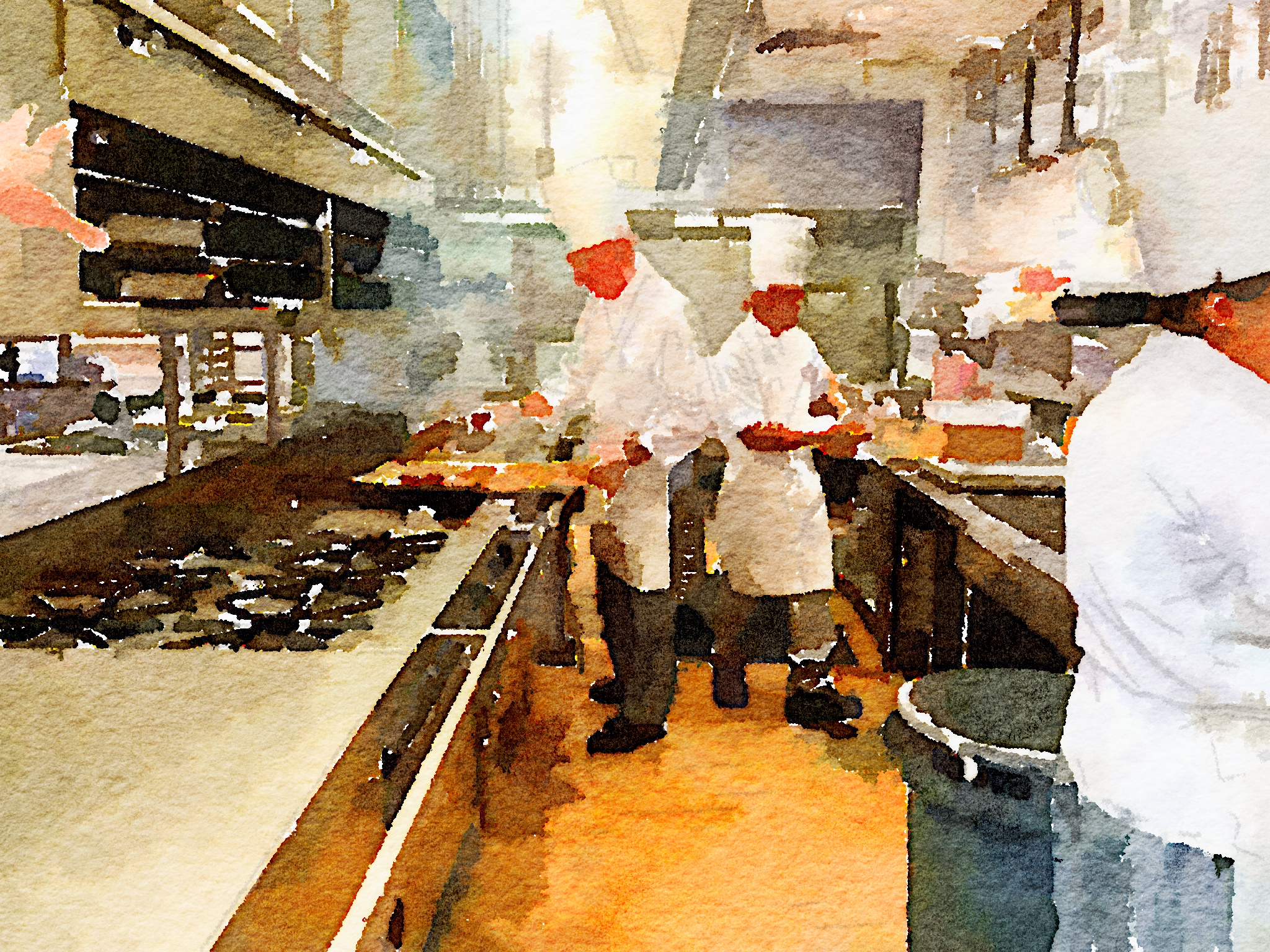
There are few examples of businesses that can continue to thrive without change. Not too long ago, the need for change was gradual – giving owners/operators a chance to assess, research, test through trial and error, and slowly take baby steps towards anything that resembled significant change. Today, change happens quickly, and those operators who fail to not only watch for the warning signs, but even more importantly – fail to do their homework and anticipate change before it is ever evident, find it very difficult to maintain and even survive.
Restaurants, hotels, resorts, culinary schools, and food manufacturers must make change preparedness a priority and become change advocates or lose market share, through a lack of reinvention readiness. This preparation is a way of life in an era when everything shifts so quickly. No business can afford to get too comfortable – the market will not allow it.
“People (or businesses) who cannot invent or reinvent themselves must be content with borrowed postures, secondhand ideas – fitting in instead of standing out.”
-Warren Bennis
Here are some re-invention preparation thoughts:
[] KNOW WHO YOUR MARKET IS
Technology allows us, whether your business is food preparation and service, or food service education, to know more about a market and/or potential market, than ever before. The more you know, the more you are able to direct your attention where it counts the most. Knowing whether your market is determined by age, socio-economic factors, education levels, geography, profession, ethnicity or even gender will help with the qualification of product, service, and expected outcomes. Your marketing efforts should zero in on your intended market, but will only be effective if you truly understand what is needed or desired by that market group.
[] PAY ATTENTION TO PERCEPTIONS
It is likely that your perceptions of your business will drive how you approach product and service. It is also likely that your perceptions and those of customers, potential customers, competitors, and the marketplace in general will differ. Understanding these differences and adjusting, accordingly, to how you operate – is an important element of business success.
“Perception is reality. If you are perceived to be something, you might as well be it because that’s the truth in people’s minds.”
-Steve Young
[] LEARN TO BE FLEXIBLE
Change is inevitable. Failure to change when necessary will likely lead to business failure. Thus, flexibility becomes a critical element in a business operator’s bag of tricks.
[] STUDY THE MARKETPLACE
The marketplace is impacted by so many different factors: national and local economics, demographic shifts, unemployment, education, politics, weather and seasonal shifts, transportation, competition, and consumer habits. It is important that operators, and chefs, pay attention to what is going on in their immediate universe and adapt to changes that do, or might impact the marketplace. If it were only just about preparing food, life would be so much easier.

[] LOOK FOR WARNING SIGNS
Action vs. reaction: if a business is in reactive mode then they are constantly using crisis management techniques that almost always result in challenges with their market base, their staff, their reputation, and the expectations that people have of the business. When operators are tuned into what is taking place in the market then the warning signs can trigger action and preparation before problems arise. National dips in employment, drifting customer counts, lower check averages, difficulty in finding students or employees to fill a program, changes in the housing market, and dramatic shifts in the stock market and consumer confidence will ultimately trickle down to restaurant profitability. The best operators pay attention to the signs and take proactive measures to stay ahead of the challenge.
[] DON’T GET STUCK ON THE WRONG SIDE OF THE BELL CURVE
The product lifecycle bell-curve points to the stages that products or services typically go through from inception, through steady growth, peak performance, and then decline. The most successful businesses are introducing the next product, service, or re-invention while the current product or service is hot. So during the growth phase – the next iteration is building interest. If you wait until the start of decline then you are always playing catch up baseball. This inevitably leads to poor decision-making out of crisis mode.
[] BECOME A CHANGE AGENT
Lead, follow, or get out of the way. Change will happen with or without you, so it only makes sense to prepare for it, embrace it, and push forward with enthusiasm.
“If you don’t like change, you will like irrelevance even less.”
-General Eric Shinseki
[] THINK BIG
Gone are the days when an occasional tweaking of what you offer is enough to keep your business vibrant. Effective businesses are not only looking at how they might fit in the marketplace, but rather how they can take the lead. Discover what is needed to forge ahead and take action.
[] PLAN THOROUGHLY AND TAKE EDUCATED RISKS
Risk taking is a positive process if it is well thought out and there appears to be a greater chance of success than failure.
[] KNOW WHAT YOU DON’T KNOW
You may think you have it all figured out – the right formula, the right product or service, and the right people to make it work, but unless you are willing to accept that there is much more to learn, and unless you are willing to invest the time and effort in building your base of knowledge, then your success may be short-lived.

[] TALK IS CHEAP – ACTION IS WHAT COUNTS
Ideas without action are very shallow.
[] USE YOUR NETWORK OF INFLUENCE
Solicit, accept, and act on the feedback that you solicit from those stakeholders who are willing and able to offer their observations and recommendations.
[] KEEP YOUR RIGHT FOOT ON THE GAS AND YOUR LEFT ON THE BRAKE
Readiness is always enhanced with a touch of “eyes wide open” caution. Move forward but always stay alert for hungry sharks around the corner.
[] LEARN FROM OTHER’S MISTAKES
Be observant of others and take lots of notes. Stay tuned to environmental factors that are impacting operators (even outside of the food business) and pay attention to how they react. Take advantage of their learning curve.
“Learn from the mistakes of others. You can’t live long enough to make them all yourself.”
-Eleanor Roosevelt
PLAN BETTER – TRAIN HARDER
Harvest America Ventures, LLC
www.harvestamericaventures.com
www.harvestamericacues.com BLOG
Restaurant Consulting

Leave a comment